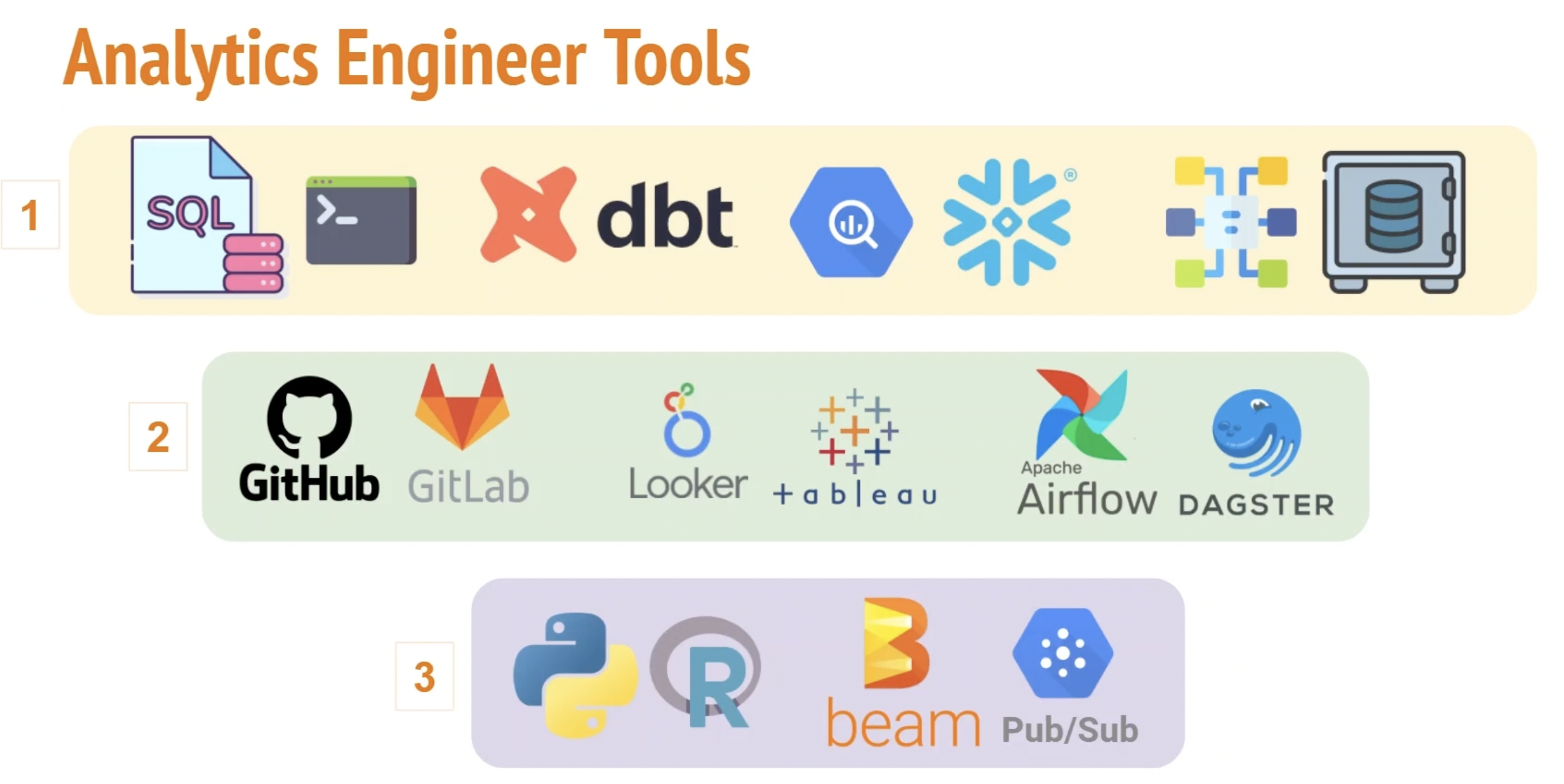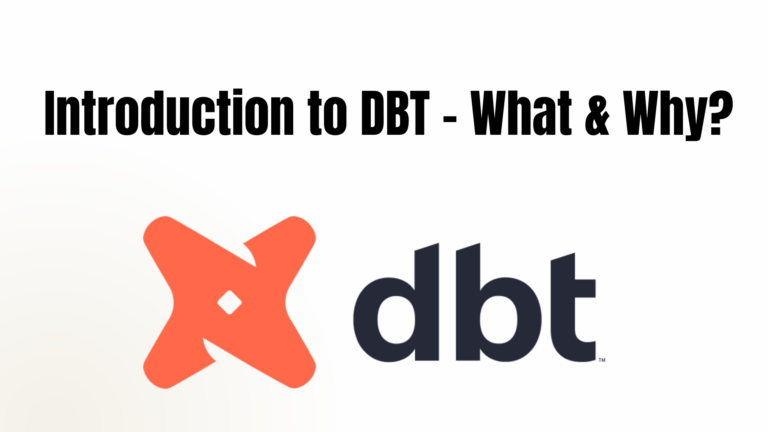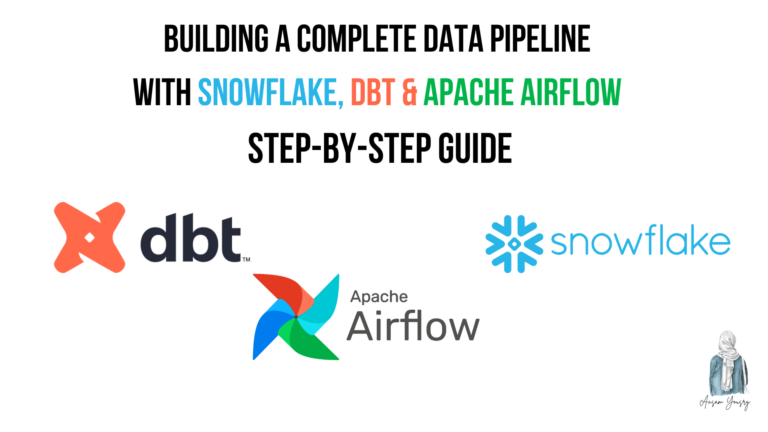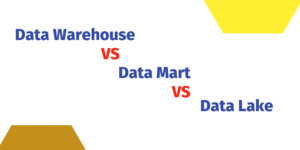Analytics Engineering is a highly in-demand role that focuses on using data to make informed decisions. In this article, we will explore the evolution of analytics engineering, its importance in data projects, and the key skills and tools needed for success in this field.
Table of Contents
The Birth of Analytics Engineering
The role of an analytics engineer has evolved due to changes in data processing approaches and the use of cloud technologies. Traditionally, data engineers were responsible for extracting, transforming, and loading data into a warehouse. However, the shift to the ELT approach, where data is loaded first and then transformed, has created opportunities for technical data experts, such as BI analysts, data analysts, and data warehouse developers, to handle data transformation tasks. These professionals, who already have a strong understanding of business logic and are skilled in writing complex SQL queries, are well-suited for the analytics engineering role. They can leverage their expertise to bridge the gap between technical and business teams and drive data-driven decision-making processes.
Finding individuals with a software engineering background who can also perform data analysis tasks was a challenge. However, the shift to ELT has made it easier to identify professionals with strong technical backgrounds and excellent SQL skills, bridging the gap between software engineering and data analysis. This has led to the rise in popularity and demand for analytics engineers, who can combine technical expertise with business acumen to deliver actionable insights.
Roles of analytics engineer
The role of an analytics engineer is to bridge the gap between technical expertise and business needs, enabling data-driven decision-making within an organization. Here are the key responsibilities and roles performed by analytics engineers:
- Data Transformation: Analytics engineers are responsible for transforming raw data into a structured format suitable for analysis. They clean, aggregate, join, and reshape datasets to ensure data quality and alignment with analytical objectives.
- Data Modeling: Analytics engineers design and develop data models that capture the business logic and requirements of the organization. They create tables, define relationships, and establish data hierarchies to facilitate efficient data analysis and reporting.
- Data Warehouse Management: Analytics engineers build and maintain data warehouses, which are central repositories for structured and organized data. They ensure data integrity, optimize storage and retrieval, and implement security measures to protect sensitive data.
- SQL Querying and Optimization: Analytics engineers use SQL (Structured Query Language) extensively to extract, manipulate, and analyze data. They write complex queries and optimize SQL code for efficient data processing and retrieval.
- Collaboration and Communication: Analytics engineers collaborate with various stakeholders, including data engineers, business analysts, and project managers. They understand business requirements, translate them into technical solutions, and communicate insights effectively to drive data-driven decision-making across the organization.
- Tool and Technology Expertise: Analytics engineers are proficient in using a range of tools and technologies such as SQL, data orchestration tools (e.g., DBT, Airflow), data visualization tools (e.g., Tableau, Power BI), version control systems (e.g., GitHub), and programming languages (e.g., Python, R). They stay updated with the latest advancements in analytics tools and techniques.
Overall, analytics engineers play a critical role in unlocking the value of data within organizations. They combine technical skills, data expertise, and business acumen to enable effective data analysis, insights generation, and decision-making processes.
Skills for Analytics Engineers
While the exact requirements and responsibilities of analytics engineers may vary among organizations, several core skills are essential for success in this role.

Here are some of the skill sets required for analytics engineers. Please note that the exact responsibilities and requirements of this role can vary from company to company, and this is not an exhaustive list.
Must-Have Skill Set
The following skills are considered essential and will be used in your day-to-day activities as an analytics engineer:
- SQL: Proficiency in SQL is essential as analytics engineers use it for data manipulation and analysis.
- Data Transformation: Analytics engineers must excel in transforming raw data into a structured format suitable for analysis.
- Data Warehouse: Building and maintaining data warehouses is a crucial responsibility of analytics engineers.
- Data Modeling: Analytics engineers should be skilled in designing data models to support efficient analysis and reporting.
These skills enable analytics engineers to work with data effectively, ensure data quality, and generate meaningful insights for decision-making.
Skills to be Aware of:
These skills are important for analytics engineers to be aware of:
- Data Orchestration: Understanding data orchestration tools and processes helps analytics engineers collaborate effectively and integrate their data models into the analytics workflow.
- BI Tools: Familiarity with Business Intelligence (BI) tools enables analytics engineers to transform data into actionable insights and create visualizations for end-users.
- Version Control: Knowing version control tools like Git allows analytics engineers to track changes in their code and data models for better collaboration and project management.
- Communication: Effective communication skills are vital for analytics engineers to collaborate with stakeholders, ensuring clear understanding of requirements and successful execution of data projects.
These skills enhance the capabilities of analytics engineers and contribute to their effectiveness in data-driven projects.
Skills Nice to Have
- Programming: Having programming skills beyond SQL, such as Python or R, can be beneficial for analytics engineers. It allows them to automate processes, perform advanced data analysis, and develop custom solutions.
- CI/CD (Continuous Integration/Continuous Deployment): Knowledge of CI/CD principles and tools can help analytics engineers streamline the deployment and delivery of their data models and ensure efficient and reliable data pipelines.
- Data Engineering Principles: Familiarity with data engineering principles, such as data modeling, ETL (Extract, Transform, Load) processes, and database optimization, can enhance the capabilities of analytics engineers. It enables them to work more effectively with data engineering teams and understand the end-to-end data lifecycle.
- Security & Governance: Understanding data security and governance practices is important for analytics engineers. It allows them to handle sensitive data responsibly, ensure compliance with regulations, and implement proper access controls to protect data privacy.
Having these skills as a part of their repertoire can make analytics engineers more versatile, enable them to collaborate effectively with other teams, and contribute to the overall success of data-driven initiatives.
Tools for Analytics Engineers
Here are some tools that Analytics Engineers can use. Some tools are mandatory to know and others are nice and bonus to know.

Tools commonly used by analytics engineers:
- DBT (Data Build Tool): DBT is often used alongside SQL and command line consoles for data transformation and modeling.
- Modern Data Warehouse Technologies (e.g., BigQuery, Snowflake): Analytics engineers typically work with modern data warehouse technologies to store and analyze data.
- Data Modeling Techniques (e.g., Kimball, Data Vault): Familiarity with various data modeling techniques is important for analytics engineers to structure and organize data effectively.
- Version Control Tools (e.g., GitHub, GitLab): Analytics engineers use version control tools to manage and track changes in SQL code and data models.
- Business Intelligence (BI) Tools: Analytics engineers connect their data to BI tools for report building and self-serve BI purposes.
- Data Orchestration Tools (e.g., Airflow, Dagster): While not responsible for managing these tools, analytics engineers use them to orchestrate data workflows.
- Programming Languages (Python, R): Knowledge of programming languages like Python and R allows analytics engineers to automate tasks and perform advanced data analysis.
- Apache Beam: Apache Beam is used to create data processing pipelines, including batch and streaming processing.
- Google Pub/Sub: It is an example of a messaging service used for exchanging event data between applications and services.
Conclusion
The role of an analytics engineer has become increasingly vital in the era of data-driven decision-making. With their unique blend of software engineering, data analysis, and data transformation skills, analytics engineers are crucial in bridging the gap between technical and business teams. By understanding the evolving responsibilities, acquiring the necessary skills, and familiarizing themselves with the right tools, aspiring analytics engineers can position themselves for a rewarding career in this rapidly growing field. Embracing the challenges and opportunities of analytics engineering will enable professionals to make a significant impact by transforming raw data into actionable insights that drive business success. If you are interested in Data engineering, I recommend this Data engineering roadmap.




